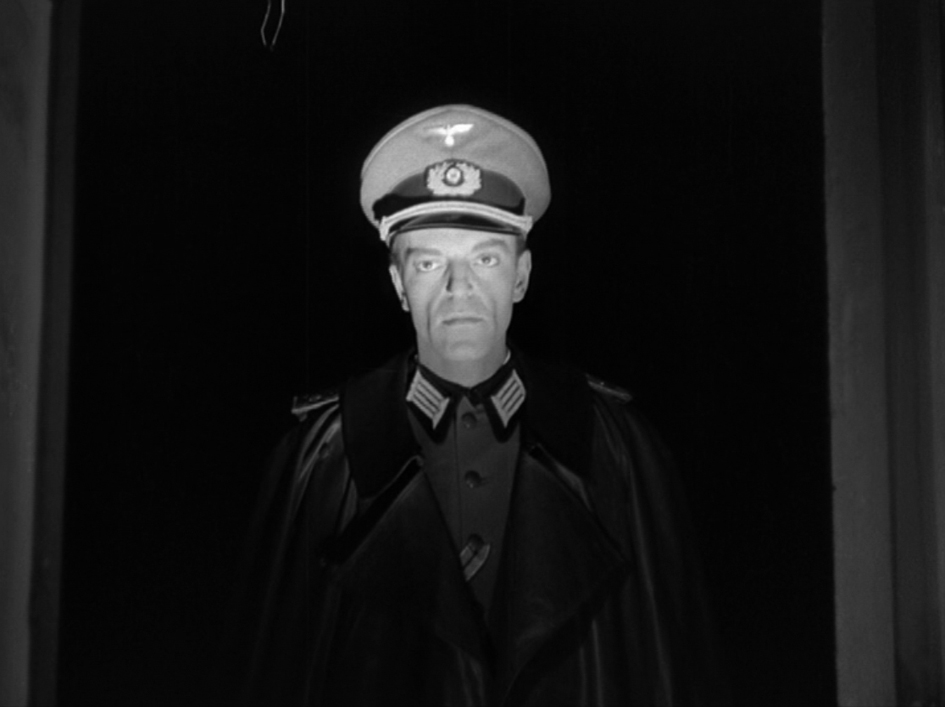Le Silence de la mer Review
Le Silence de la mer is a real treat, both as a standalone experience and also particularly for anyone familiar with and interested in Melville’s body of work. Le Silence de la mer was a film that so easily could have never been seen, with Melville taking a huge gamble in making the film without the consent of author Bruller and agreeing only to release it if it gained the approval of a specially selected jury of resistance members. The film thankfully passed the test and Bruller gave Melville his blessing to release it in 1949.
Telling the story of a German officer (Howard Vernon) who is thrust upon a French unnamed man (Jean-Marie Robain) and his niece (Nicole Stéphane), and uses their home as his home, Le Silence de la mer is a difficult balancing act and one that must have been even trickier and all the more sensitive just a few years after the end of World War Two. Whilst the German officer, Werner von Ebrennac, talks at length throughout the film, the French uncle and niece remain completely silent, their opinions and thoughts only relayed through the voiceover from Jean-Marie Robain, the niece significantly having no such platform.
Von Ebrennac is cultured and intelligent, sympathetic and idealistic and during his many monologues he reveals his dreams of uniting France and Germany, and indeed all of Europe, believing that this is the war that he is fighting for. The ugly truth of the Nazi agenda is revealed to him though, in a rather heartbreaking scene, and the film ends with the French man finally communicating to von Ebrennac, albeit not verbally, that accepting the truth of the Nazi occupation and continuing to follow orders should not be his future. The silent and stubborn integrity that von Ebrennac witnesses in the French home clearly has an impact on him and the film is all the more emotionally resonant due to the complex journey that von Ebrennac goes on throughout the film.
Melville presents a complex and intelligent argument about war and resistance in a film that is both icily still and intellectual but also quietly very emotional.
